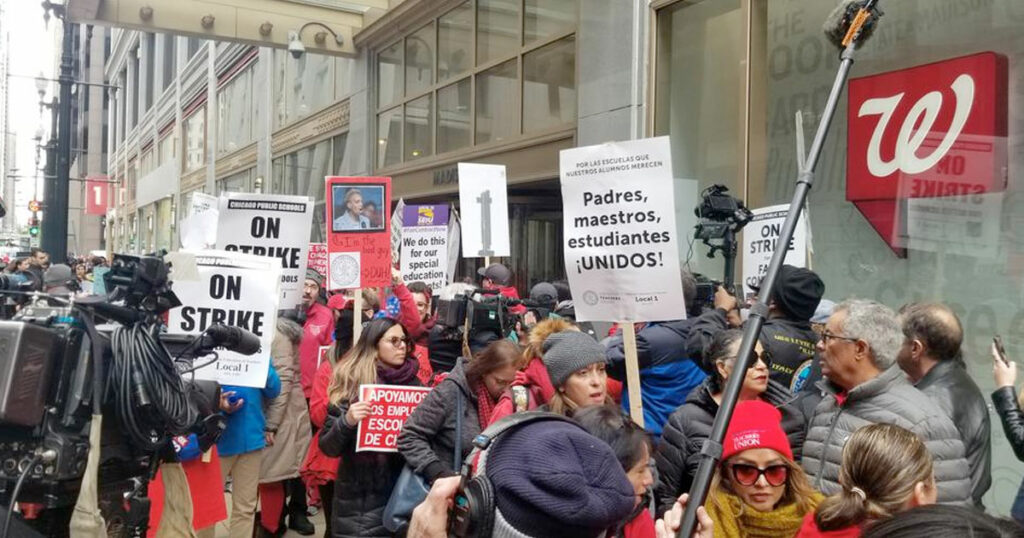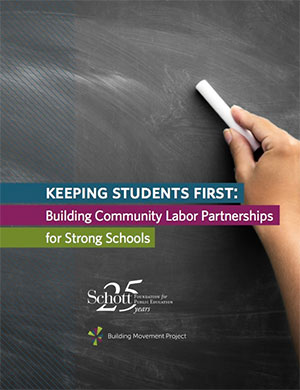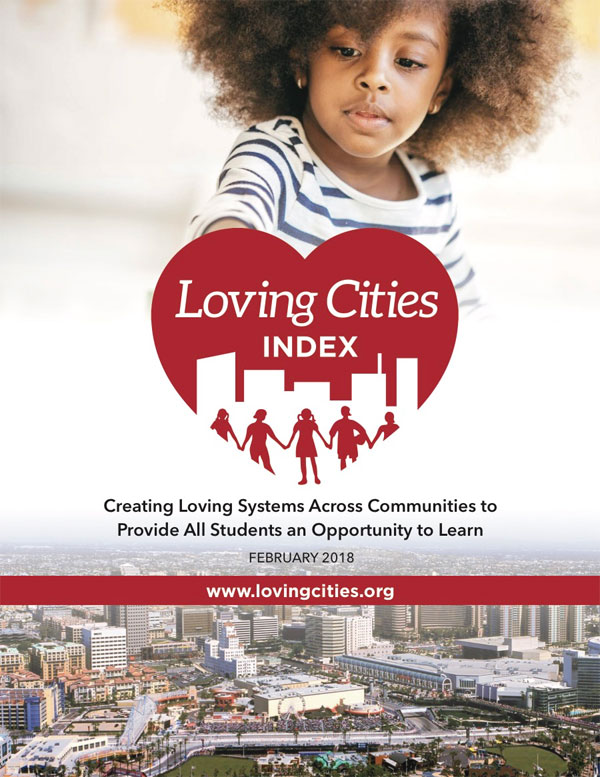Blog
A Strike for a Loving City

UPDATE: the strike has ended with a new contract. Read about it here.
More than 30,000 educators and support staff, Chicago Teachers Union, and SEIU members are walking out of public schools in Chicago starting today:
The strike comes on the heels of other teacher strikes in Oakland, Los Angeles, Colorado, and Virginia earlier this year, and is CTU’s first since its eight-day strike in 2012, when teachers sought higher wages, fair teacher assessment, and job security, among other issues. Community support is once again strong in the city today as the union seeks higher pay and benefits, fully staffed schools, and smaller class sizes.
Continuing a trend over the past several years, greater cooperation and coordination between educators and social movements has resulted in a sea change in both understanding and action. Schools don’t exist as islands but the impact and are impacted by the economic and political climates that surround them. Students don’t come into classrooms as blank slates but carry with them all the advantages and disadvantages they live with beyond the schoolhouse.
 The Schott Foundation has, since its founding, built bridges across multiple constituencies, organizations, and advocates in the greater education justice movement—many of whom didn’t necessarily see eye-to-eye. That’s why, for example, we are a founding partner of the pathbreaking Alliance to Reclaim Our Schools, which works as a common table around which labor, parent, youth, and community groups can find and pursue unifying goals.
The Schott Foundation has, since its founding, built bridges across multiple constituencies, organizations, and advocates in the greater education justice movement—many of whom didn’t necessarily see eye-to-eye. That’s why, for example, we are a founding partner of the pathbreaking Alliance to Reclaim Our Schools, which works as a common table around which labor, parent, youth, and community groups can find and pursue unifying goals.
Last year, Schott teamed up with Building Movement Project to examine what makes successful community-labor partnerships work. The product is the toolkit Keeping Students First: Building Community Labor Partnerships for Strong Schools, which contains case studies, resources, and sample activities for cross-sector groups to undertake together to strengthen and grow their joint efforts. As the report states:
Community labor partnerships build the voice and power of all parties and make it harder for officials to ignore the arguments coming from a strong united front fighting for excellent public education that all children deserve…
The alliances that were successful over time were not restricted to traditional school issues: they took an expansive view of what affects the community and, thus, its students, engaging on policy issues including immigration, home foreclosures, police violence, local wages, and child care and early childhood resources outside of the school day.
Loving Cities Index:
Chicago Highlights
83% of students attend a high-poverty school
44% of Black students are suspended at least once
14% graduation rate gap between Black and white students
To systematize this greater, holistic understanding of public schools and movements working to improve them, we released the Loving Cities Index. The Index measures access to 24 community and school-based supports, from clean air to unemployment, from healthy food to public transit.
A key measure in the Loving Cities Index is access to housing: if families don’t have a stable and predictable roof over their heads, children can’t properly learn in class. Chicago alone has nearly 17,000 homeless students. To that end, CTU has raised an innovative demand during their current contract negotiations with Chicago Public Schools (CPS):
CTU wants language added to the contract that would direct CPS to provide housing assistance to new teachers and hire staffers to help students and their families who are in danger of becoming homeless. The union also wants to ensure housing for the city’s homeless student population by 2020 through Section 8 voucher programs and use tax increment financing funds for affordable housing units.
Demands like this are part and parcel of a longstanding grassroots effort to create sustainable community schools: public schools that are the beating heart of neighborhoods, schools that provide not just a high-quality education for every student but also the wrap-around supports needed to help address the myriad out-of-school factors that impact a child’s achievement.



